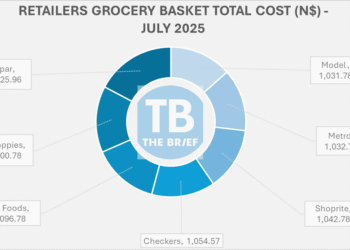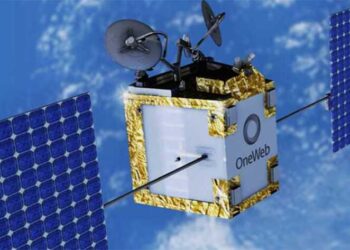
Trevali Mining Corporation (Trevali) has entered into a mandate agreement with Standard Bank Namibia and Standard Bank South Africa to arrange a N$1.76 billion project finance facility for the Rosh Pinah expansion project.
The agreement comes as the global base-metals mining company which owns 90% of Rosh Pinah mine and an effective 44% interest in the Gergarub project in Namibia had initially targeted a comprehensive financing package totaling approximately N$3.2 billion (US$200 million) to refinance existing debt and to fund the RP2.0 project.
Ricus Grimbeek, Trevali’s President and CEO, said the Rosh Pinah Expansion remains a key project for the listed miner.
“The early works program for the RP2.0 expansion at Rosh Pinah is tracking well and is on budget and schedule. I am pleased to announce that Trevali has executed a mandate agreement to arrange a senior secured financing facility of up to $110 million with Standard Bank. This is an important step forward towards a comprehensive financing package for the company. In addition, we have received several fulsome non-binding expressions of interest from streaming and royalty companies to support our funding requirements. Finally, I would like to reiterate that RP2.0 is a prized project for us, and we believe the strong fundamentals in the zinc market support the timing of this investment in transforming the company,†Grimbeek said.
According to details of the agreed mandate, Standard Bank will seek credit approval to provide up to 100% of the amount of the Loan Facility, and to arrange an Export Credit Agency backed equipment finance facility for a significant portion of the N$1.76 billion (US$110 million) Loan Facility.
“The Mandate Agreement sets out an exclusive arrangement with Standard Bank describing the activities needed to arrange a senior secured financing facility for the RP2.0 expansion project at the Rosh Pinah mine. The proposed senior secured financing facility is expected to comprise most of the comprehensive funding package,†the miner said.
In addition to the Loan Facility, the company said it had received non-binding expressions of interest from streaming and royalty companies in the order of N$639 million (US$40 million) to N$799 million (US$50 million), and from mining-focused alternative lenders, as well as from the Rosh Pinah mine’s concentrate off-taker, Glencore.
“Glencore has indicated its support for the project by proposing an aggregate N$527.5 million (US$33 million) financing package, which may include an extension to the existing Glencore Facility of N$207.8 million (US$13 million), subordinated to traditional project finance debt and contingent on the remainder of the required financing package being secured as well as negotiation of satisfactory terms and conditions,†Trevali said.
Trevali’s estimates put the RP2.0 expansionary capital costs at about N$1.77 billion (US$111 million). The expanded mine was projected to produce, on average, 135-million pounds a year of payable zinc, 23.7-million pounds a year of lead and 303 000 oz/y of silver over an expected nine-year post-expansion mine life.
Â











